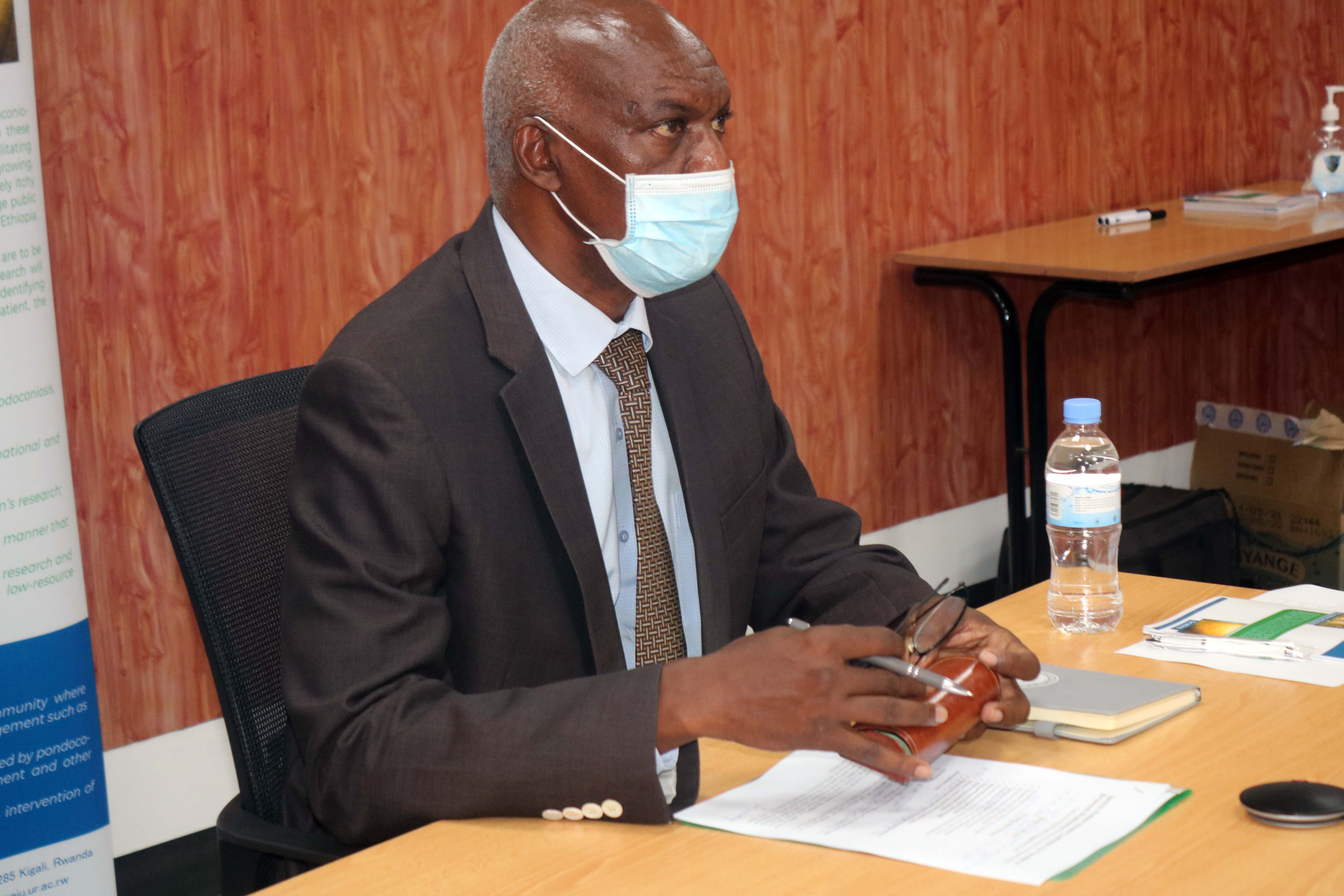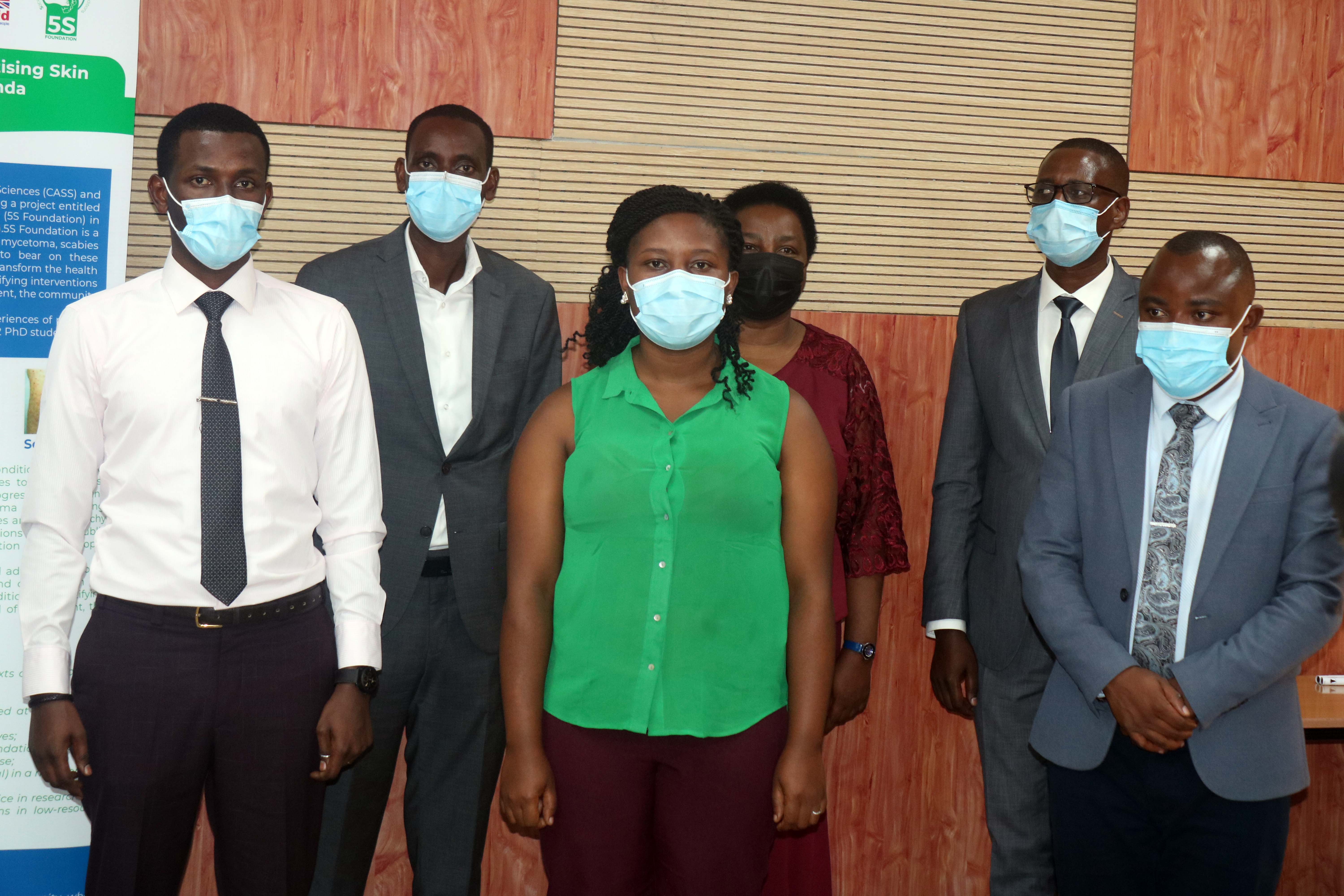UR’s ACE-DS hosts the 8th Data Science Africa (DSA) Conference
- 10-05-2023
- 282
The University of Rwanda has launched the Social Sciences for Severe Stigmatising Skin Conditions project (5S Foundation), a collaborative research project that is meant to end neglect and stigma of patients suffering from Podoconiasis and Scabies. The project will be implemented in a partnership involving Brighton, Sussex Medical School (BSMS) the Organization for Social Science Research in Eastern and Southern Africa (OSSREA) based at Addis Ababa University in Ethiopia and the Mycetoma Research Centre in Sudan and University of Rwanda.
Podoconiosis and Scabies are two tropical diseases of the skin that cause neglect, suffering, depression, and body disfigurement in patients.
In his remarks the Vice Chancellor of UR Prof. Alexandre Lyambabaje hailed the partners who made this project possible and said that this project would leave a positive impact on the lives of not only the patients suffering from Podoconias and skin diseases but also the community in areas where the patients live.
“The research will transform the health and wellbeing of people affected by these conditions by identifying interventions informed by social science perspectives at the level of the patient, the community, national and international policy”, he said.

The UR VC Prof Lyambabaje during the launch of the project
He further called upon the participants to generate ideas that will consequently improve the livelihood of people affected with Podoconiasis and skin diseases in Rwanda.
Prof Gail Davey 5S foundation project director UK, stated that, 5S foundation project was designed to bring to attention of the skin conditions that are commonly causing disability and distress but are highly neglected by health systems throughout the world. She added that the project will translate research findings into policy and practice.
On the other hand, Dr. Shahaduz Zaman, a co-director at 5S Foundation UK, observed that their focus is to build capacity from social science perceptive and studying Neglected Tropical Diseases (NTDs) since social science contributes to understanding these diseases them. This will be achieved by contextualizing the problems, getting peoples’ perspectives, and pay attention to the complexity of these problems as well as developing informed cultural intervention.
In order to do so, a framework has been developed to explore complexities of these issues from different perspectives, basically 3 layers have been designed namely micro, messo and macro.

Participants during the inception of the project
The Lancet Global Health report indicates that over 6,000 people across the country are infected by Podoconiosis mainly in the districts of Nyamasheke, Musanze, Karongi, Gisagara and Gicumbi. Globally, four million people are affected by this condition.